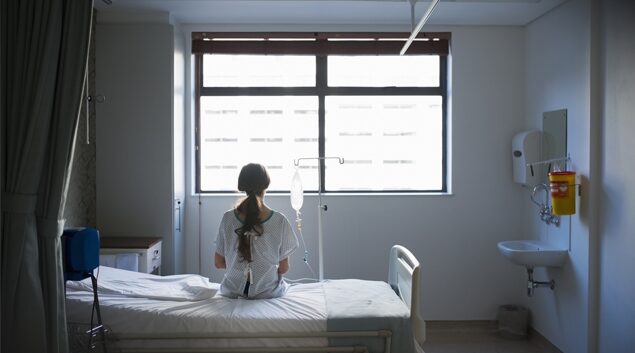A decline in emergent hospitalizations was found at BIDMC during the early phase of COVID-19
Healthcare Finance News – July 24, 2020
In a study published in the Journal of General Internal Medicine, researchers led by Timothy Anderson, MD (Medicine, BIDMC) report on the decline of emergent medical, surgical and obstetric hospitalizations at the medical center during the six-week period following the week of the declaration of the COVID-19 public health emergency in Boston in mid-March 2020.

Early reports have shown the COVID-19 pandemic has resulted in a decline in the number of patients seeking outpatient medical care. Whether and how the pandemic has impacted patients seeking care for emergent conditions – emergent medical, surgical and obstetric hospitalizations – remains unclear.
But emerging studies, including one from colleagues at Beth Israel Deaconess Medical Center, demonstrate a reduction in patients seeking care for heart attack, stroke and cancer care.
In the Journal of General Internal Medicine, researchers from BIDMC report on the decline of emergent medical, surgical and obstetric hospitalizations at the medical center during the six-week period following the week of the declaration of the COVID-19 public health emergency in Boston in mid-March 2020.
Comparing data from the same period in 2019, the authors found a 35% decrease in weekly hospitalizations overall and a 45% decrease in weekly hospitalizations that were not related to COVID-19.
WHAT’S THE IMPACT?
The findings suggest that people with life-threatening conditions were likely avoiding the hospital during the early stages of the coronavirus pandemic, which is in line with data showing increased mortality from non-COVID-19 diseases during that window.
The task now is to follow this trend to determine whether patients who delayed care are now suffering from worse health as a result. The answer can be used to determine broader public health responses to future pandemic surges.
The researchers identified all hospital admissions from BIDMC between January 1, 2019, and April 25, 2020. They then examined the weekly incidence of overall admissions to emergent medical, surgical, obstetric and psychiatric services, as well as hospitalizations for COVID-19 in 2020.
After conducting a time-series analysis comparing the same six-week periods, year against year, the authors found there were significantly fewer weekly hospitalizations for emergent medical conditions.
They reported a 51% decrease in acute medical conditions, such as cardiac arrest or stroke; a 31% decrease in acute surgical conditions, such as appendicitis; a 55% decrease in chronic disease exacerbations, such as diabetes or asthma; and a 13% decrease in obstetric hospitalizations.
While the number of hospitalizations went down, the reasons for this aren’t entirely clear. It could well be that patients skipped care due to fear of contracting the virus, but it’s also possible that college students and others left Boston at the beginning of the public health crisis, thereby reducing the overall population.
THE LARGER TREND
Utilization numbers are showing many trends that are troubling for hospitals looking to keep their margins afloat. Just this week, American Hospital Association President and CEO Rick Pollack, pulling from Kaufman Hall data, said the cancellation of elective surgeries is among the factors contributing to a likely industry-wide loss of $120 billion from July to December alone.
When including data from earlier in the pandemic, the losses are expected to be in the vicinity of $323 billion, and half of the nation’s hospitals are expected to be in the red by the end of the year.
John Haupert, CEO of Grady Health in Atlanta, Georgia, said this week that COVID-19 has had about a $115 million negative impact on Grady’s bottom line. Some $70 million of that is related to the reduction in the number of elective surgeries performed, as well as dips in emergency department and ambulatory visits.

